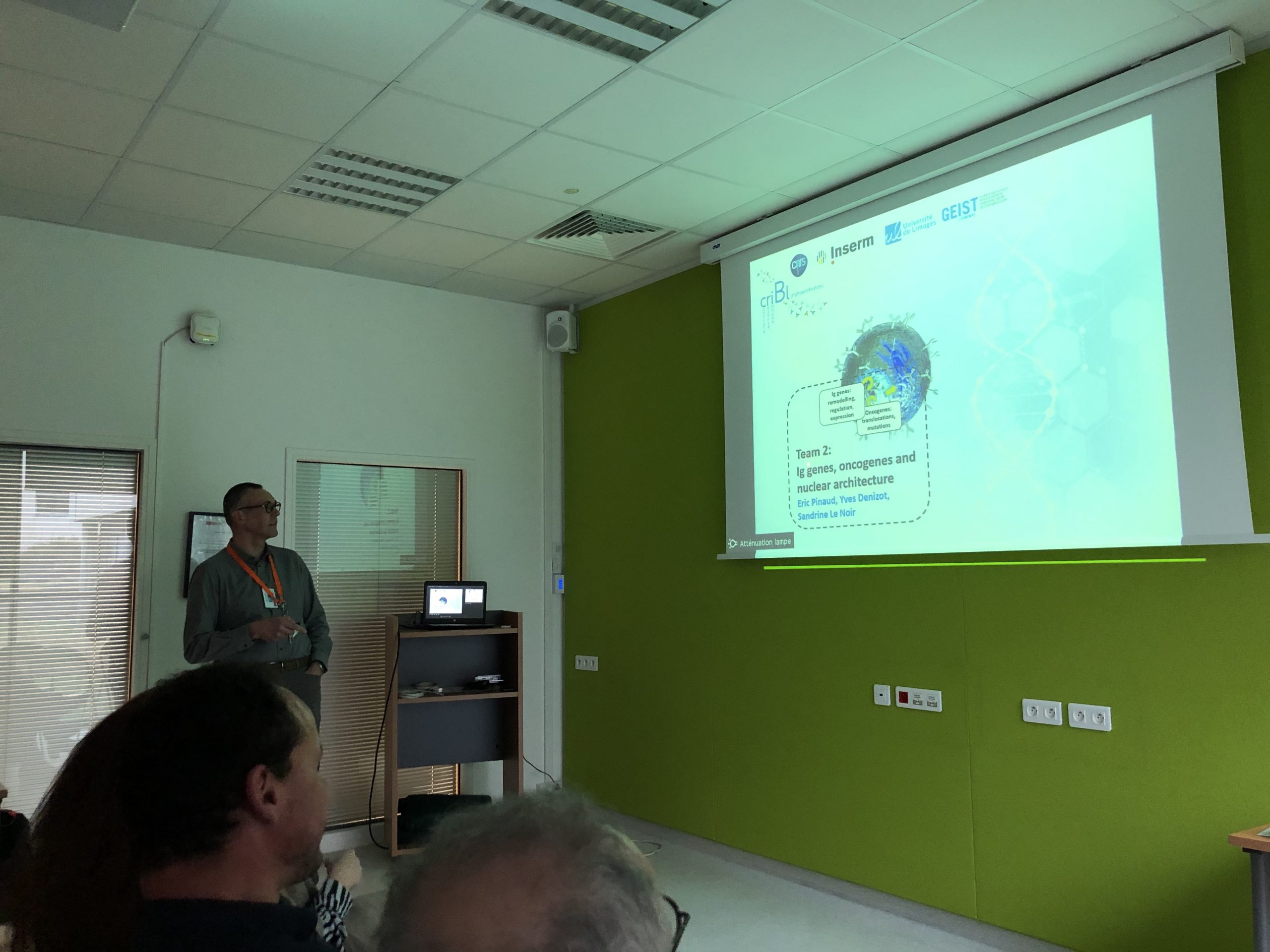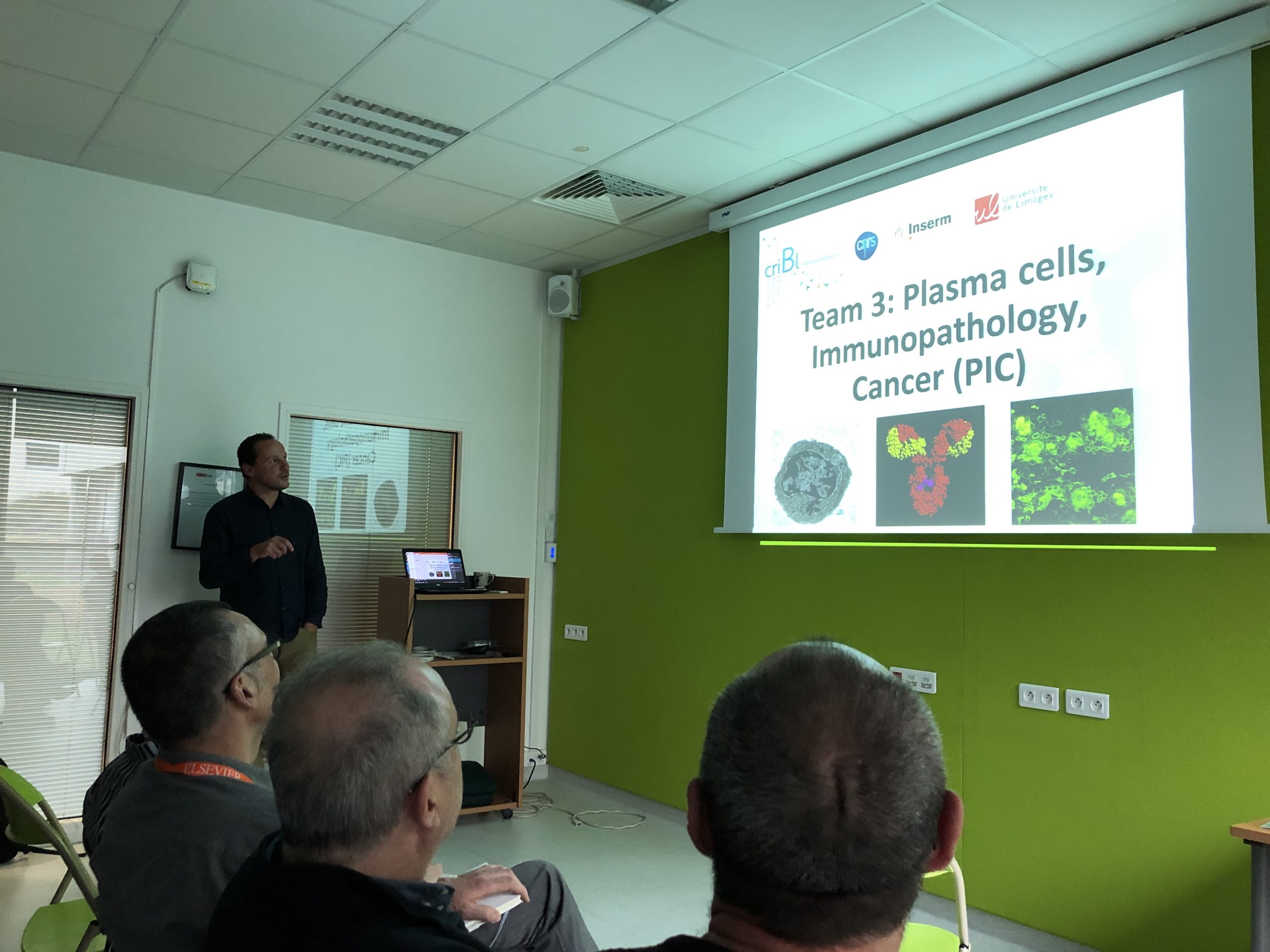Détails
29 January 2020, 18 h 00 min
31 January 2020, 18 h 00 min
Présentation
The CRIBL unit organized a Scientific Advisory Board visit on January 29, 30 and 31 2020. Members of the unit are very grateful to the outstanding scientists who kindly accepted to review our current work and projects for the future 2022 – 2026 research contract.
This SAB was led by Prof. Eric Solary (expert in onco-hematology, from Gustave Roussy Institute, Villejuif France) and composed of :
- Prof. Anne Corcoran (expert in B cell gene regulation from Babraham Institute, Cambridge, United Kingdom),
- Prof. Marc Schmidt-Supprian (expert in lymphocyte signaling and proliferation from Technical University of Munich, Munich Germany)
- Prof. Renato Monteiro (expert in cellular immunology and kidney diseases, Bichat Hospital, Paris France).
This visit by our SAB committee was an opportunity for scientists from our campus to attend an impressive seminar given by Marc Schmidt-Supprian entitled “c-Rel and A20 in autoimmunity and lymphomagenesis”.
During a full day, experts for the SAB carefully listened to oral presentations of research orientations proposed by the main teams that will compose the future CRIBL Unit in 2022 :
– team #1 : Molecular mechanisms of B-Cell Cancerogenesis, led by Jean Feuillard
– team #2 : Immunoglobulin genes, oncogenes and nuclear architecture, led by Eric Pinaud & Yves Denizot
– team #3 : Plasma cells, Immunopathology and Cancer, led by Christophe Sirac & Laurent Delpy
SAB members also gave a strong input to young researchers and lab engineers during extended and captivating poster sessions. The last day, SAB members exposed their respective view points and gave interesting feedback and advice on our future research axes.
We are very grateful to all SAB members for their input and encouragement, we could cite “Overall, the Board has a very high enthusiasm for the research efforts of the CRIBL and views it as a unique resource in France, and beyond, as it plays an important role in the efforts to decipher the regulation of B cells and associated diseases”.







